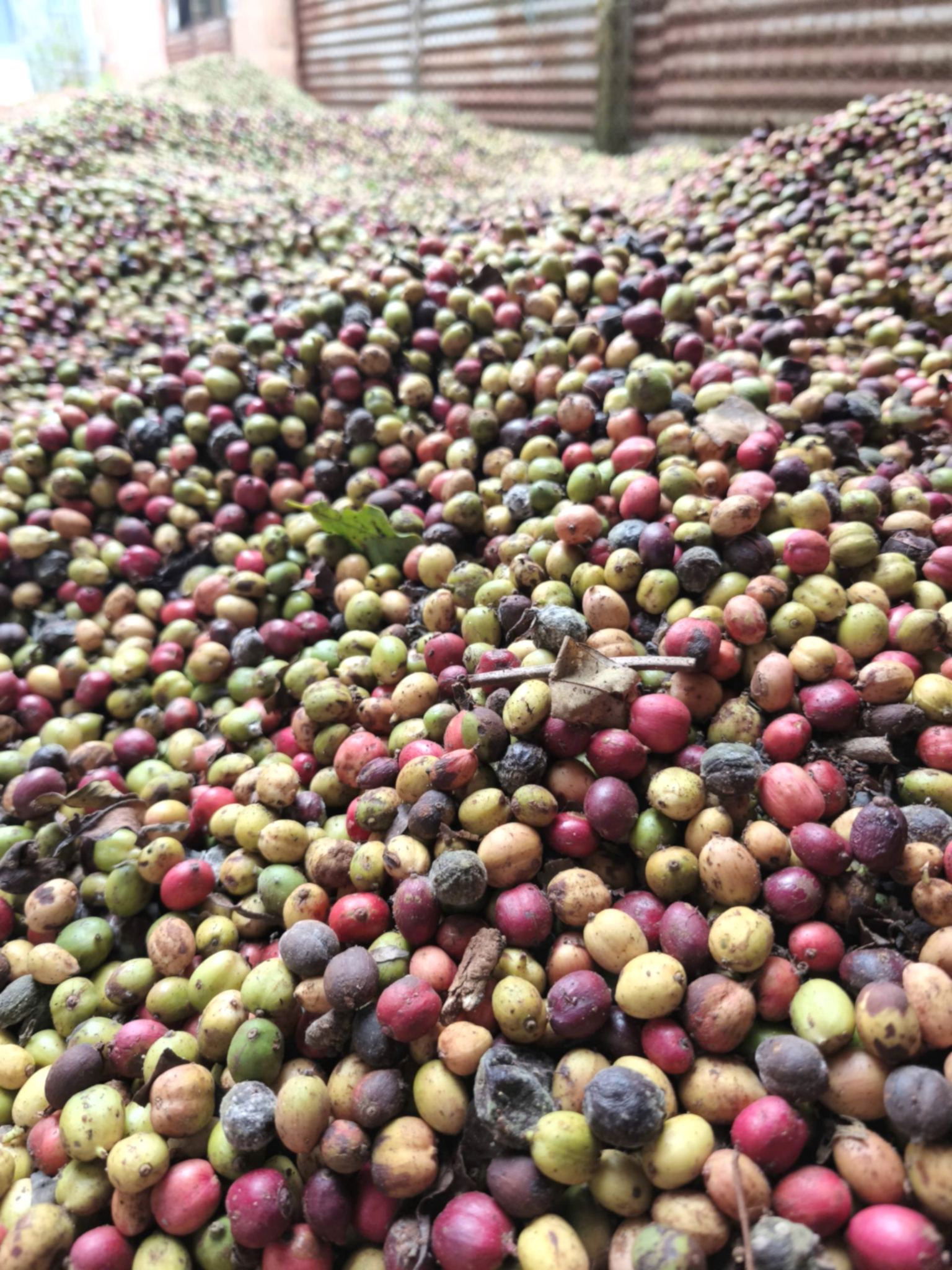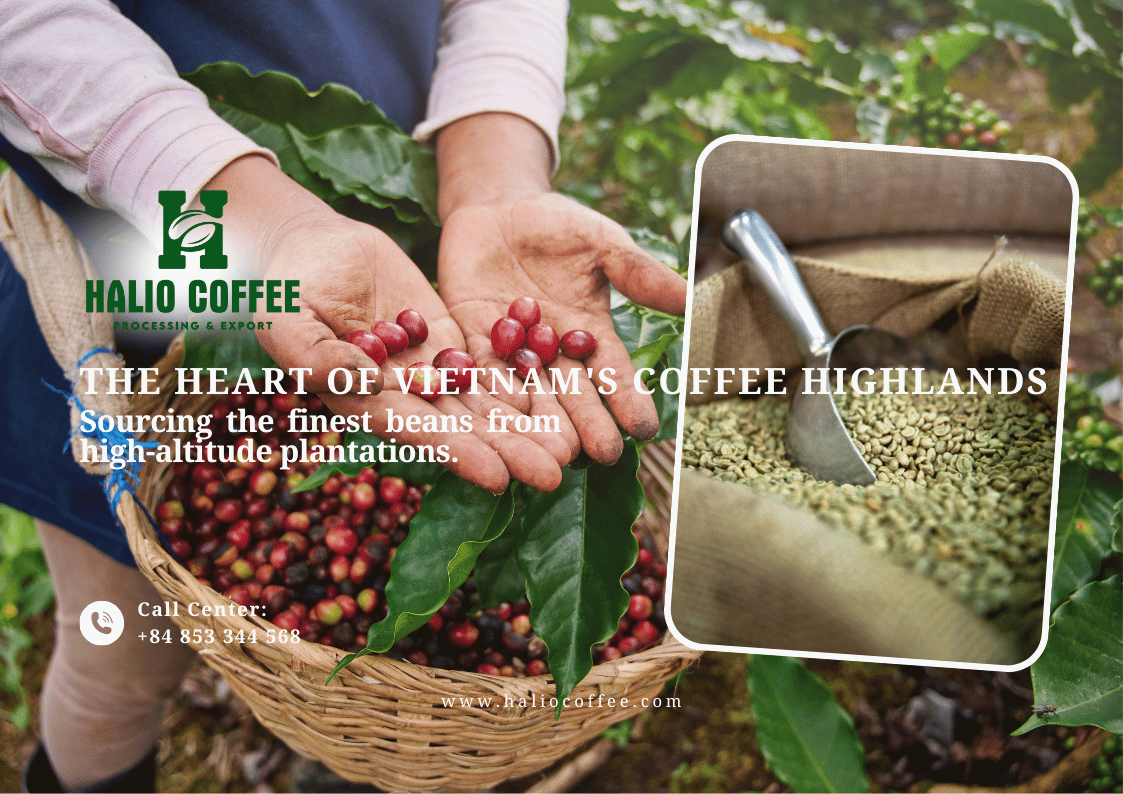Coffee Prices Today, September 11: Sharp Gains as Robusta Jumps Over $100/Ton
Coffee Prices Today surged strongly across global exchanges, fueled by ongoing concerns about tariffs, shrinking inventories, and reduced exports from Brazil, the world’s largest coffee producer.
Domestic Coffee Prices in Vietnam on September 11
After yesterday’s downward adjustment, coffee prices in Vietnam’s Central Highlands rebounded sharply this morning, rising between 2,300 – 2,500 VND/kg.
The average nationwide buying price has now climbed to 116,800 VND/kg.
- In Đắk Nông, prices reached 116,900 VND/kg (up 2,300 VND).
- In Đắk Lắk, farmers sold at 116,800 VND/kg (up 2,300 VND).
- In Gia Lai, the market recorded 116,700 VND/kg (up 2,400 VND).
- In Lâm Đồng, the lowest price was 116,000 VND/kg (up 2,500 VND).
Global Coffee Market Update
At the close of trading on September 10:
- On the London exchange, robusta coffee surged:
- September 2025 contract rose 2.31% (+$106) to $4,693/ton.
- November 2025 contract gained 2.34% (+$106) to $4,477/ton.
- January 2026 contract climbed 2.23% (+$96) to $4,403/ton.
- On the New York exchange, arabica coffee also rallied:
- September 2025 contract jumped 2.04% (+8 US cents/lb) to 401 US cents/lb.
- December 2025 contract rose 1.34% (+5.1 US cents/lb) to 386.9 US cents/lb.
- March 2026 contract added 1.32% (+4.85 US cents/lb) to 373.55 US cents/lb.
According to Reuters, arabica futures climbed on Wednesday, nearing their four-month highs as markets remain worried about tariffs, tight inventories, and lower Brazilian exports.
Brazil’s Coffee Export Situation
The Brazilian Coffee Exporters Council (Cecafe) reported that Brazil’s coffee exports to the U.S. plunged 46% in August, while shipments to Latin American neighbors surged. However, industry leaders emphasized that re-routing Brazilian coffee through third countries is not a sustainable way to bypass U.S. tariffs.
Overall, Brazil’s total coffee exports in August fell 17.5% year-on-year. Arabica exports dropped 11.2%, while robusta exports plunged 34.5%.
Despite a decline in shipments to Germany, the country remained Brazil’s top importer in August, with 414,109 bags (60kg each). Meanwhile, exports to Mexico and Colombia jumped 90% and 578%, reaching 251,166 bags and 112,948 bags respectively, Cecafe data showed.
Brazil is the world’s largest coffee producer and exporter, while the U.S. is the biggest consumer. President Donald Trump’s decision to impose a 50% tariff from early August on most Brazilian goods, including coffee, has rattled the global market.
“These tariffs have disrupted the market and paved the way for speculative volatility,” said Marcio Ferreira, President of Cecafe. He also reiterated that the possibility of re-exporting raw beans through other countries is “very limited,” as such moves would be easily detected by U.S. authorities.
Impact on Instant Coffee and the Broader Market
Aguinaldo Lima, Executive Director of ABICS (the Brazilian Soluble Coffee Industry Association), told reporters that U.S. tariffs have severely hit Brazil’s instant coffee industry.
According to ABICS data, Brazil’s instant coffee exports to the U.S. fell 59.9% in August, dropping to 24,460 bags, compared to 65,914 bags in the same month last year.
“This is not only damaging our industry but also harming our U.S. trade partners,” Lima said.
The tariffs took effect on August 6, and since then, the International Coffee Organization (ICO) and Brazil’s National Supply Company (Conab) have warned that higher duties could push coffee prices even higher globally.
With Brazil being the world’s second-largest coffee consumer, higher domestic prices are also fueling inflation concerns. Celirio Inacio, Executive Director of ABIC, noted:
“Coffee is becoming increasingly expensive for consumers, leading to complaints and directly contributing to inflation in Brazil.”
Coffee Inventories and Trading Behavior
The 50% U.S. tariff has accelerated demand for certified coffee withdrawals from ICE warehouses, where inventories were already low.
- ICE-monitored arabica stocks fell to a 16-month low of 679,548 bags as of September 10.
- ICE-monitored robusta stocks slipped to a 1.5-month low of 6,552 lots on August 28, before edging slightly higher to 6,608 lots on September 10.
Meanwhile, Brazilian farmers are holding back sales, waiting for the U.S. Supreme Court’s ruling on whether President Trump exceeded his authority in imposing such tariffs.
- Sun-Dried Robusta Coffee Beans: An In-Depth Industry Guide for Producers, Roasters, and Distributors
- Single Origin Robusta Natural: Vietnam’s Contribution to Global Coffee Excellence
- Direct Trade Coffee Vietnam: A Transparent and Sustainable Approach to Green Bean Sourcing
- Coffee Prices Today, September 17: Cooling Down After Strong Rally
- Organic Robusta Coffee Distributors







